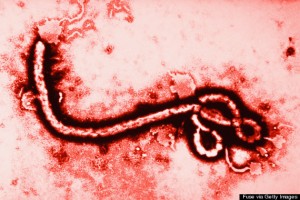In recent months, the Ebola hemorrhagic virus has significantly spread in west African countries including Sierra Leone, Guinea, Liberia, and even has reported cases in the United States. This disease, native to Africa, is transmitted through butchering infected animals with open cuts or wounds and coming in direct contact with bodily fluids of humans and animals.
The scare, however, is if it will spread significantly more throughout the United States. There have been five total cases of Americans with Ebola. Liberian Thomas Eric Duncan is one of the five cases.
Symptoms include, but not limited to, weakness, fever, aches, diarrhea, vomiting, stomach pain, rashes, red eyes, chest pain, throat soreness, difficulty breathing or swallowing, organ failure, and/or internal and external bleeding. There are no known antiviral medications for Ebola.
“The possibility of contracting Ebola or Marburg virus is extremely low unless you’ve had direct contact with the bodily fluids of an infected person or animal,” says the Mayo Clinic staff in an online informational.
Early signs of Ebola are similar symptoms of the flu, and are usually visible within eight to 10 days. However it can take as many as 21 days to diagnose as the Ebola virus.
Despite the severity of the virus in Africa, American research facilities, hospitals and experts state that Ebola is moderately contagious because it’s not airborne, and the risk among Americans is extremely low because of all the precautions being put in place.
“I am a little worried about it [Ebola],” said sophomore Alyssa Alvarez. “It’s kind of serious, but you can die from any disease.”
The United States has taken immediate action to protect the nation against an outbreak. In five U.S. airports, including Kennedy International in New Jersey, screenings for Ebola is taking place for flights from West Africa. Temperatures are taken and passengers are asked about a possible exposure to the virus. Centers for Disease Control and Prevention (CDC) assigned site managers to oversee treatment and the procedures in hospitals containing patients with Ebola.
With precautions in place and a low risk of catching Ebola, the virus is not expected to have an outbreak in the United States to the degree of that in Africa.
